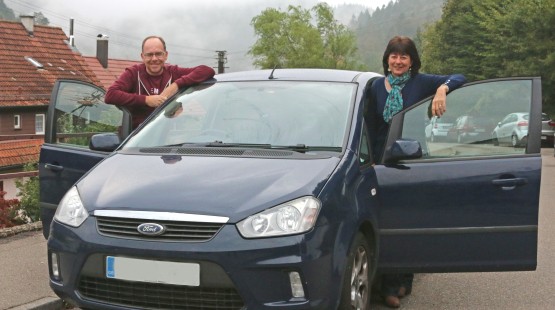Insights from the road (part one: History and Borders)
 Monday 13 March 2017 16:26
Monday 13 March 2017 16:26 During October Jim and Christine Memory spent 18 days travelling 3758 miles through 16 European countries. Here are a few of their thoughts.
History
Any trip in Europe makes you aware of its torturous history. Our first day took us through Flanders where every few kilometers there is a war cemetery and, one hundred years later, farmers are still digging up WWI ammunition. Later, on our drive from the Czech Republic to Poland, we passed through the little town of Oswiecim, better known by its German name of Auschwitz. The horrors committed there cast a shadow over the town, and our continent, to this day.
Insight: Our trip impressed on us that all mission in Europe takes place in a context that is marked by history. Even as we focus on planting tomorrow’s churches today we must equip our workers with the tools to understand their historical context and operate accordingly.
Borders
We crossed national borders on 23 occasions but thanks to the Schengen Area only had to show our passport four times (two of those were getting in and out of the UK!). While this creates the illusion of a border-free Europe, where national distinctions mean very little, one of the clearest impressions during our trip was of the enduring cultural, linguistic, architectural and culinary borders of Europe.
But these borders don’t necessarily correspond to national borders. Over and over again, in Belgium, Poland, Hungary, Italy and the Alsace we came across regions where the culture, language, architecture and food established a sense of identity and belonging which did not correspond to the borders on the map.
Insight: Understanding cultural issues is essential to understanding how to engage in mission in Europe today.
Find out more about the opportunities there and across Europe by clicking here.
Archive
November 2025
October
- October - 29 - 2025 - What Is In Your Hands?
- October - 22 - 2025 - Faith Takes Root
- October - 15 - 2025 - Don’t Overestimate What You Can Do in a Year
- October - 08 - 2025 - “Someone Has to Slay the Dragon!”
- October - 07 - 2025 - From the Giant Peach to the Hobbit House

